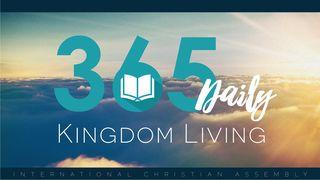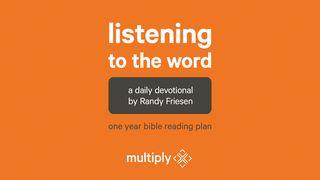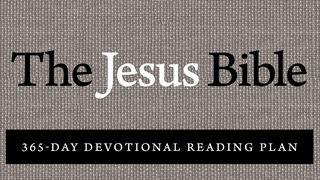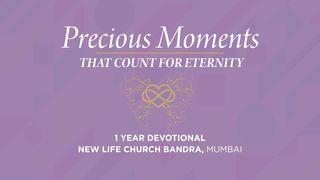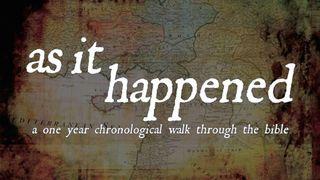For The Love Of GodSample

ALTHOUGH (OR PERHAPS BECAUSE) the Song of Songs is one of the most difficult of biblical books, it has been extraordinarily popular with both Jews and Christians. It has called forth a large number of commentaries and sermons. Space here is far too limited for a discussion, but perhaps I should record my tentative conclusions on four matters before reflecting on Song 1.
(1) Although some have denied that this book is about sexual love in any primary sense, but is an allegory of either the love between Yahweh and Israel or between Christ and the church, I doubt it. So many details of Song of Songs are so explicitly human and sexual (all the more so when the ancient Semitic symbolism is appreciated) that to argue that the meaning of the text is allegorical is unlikely. Moreover, there are many parallels in other love poetry in ancient near eastern Wisdom Literature, so that one must conclude the genre was well known.
(2) On the other hand, after fully acknowledging the human and sexual love that this book celebrates—for God has made us human and sexual, and Wisdom Literature often focuses on the glory of the created order—we may not be far off the mark if we also see, within the canonical framework, a typological connection with God and Israel, with Christ and the church. For that is a theme repeatedly picked up in both Testaments (see, for instance, Hosea, or Rev. 21).
(3) Some have seen three principal figures in this book: the woman, her shepherd-lover, and the lascivious king who is trying to add the woman to his harem. On balance, it seems better to see only two primary parties, the woman and the king-shepherd-lover. The “daughters of Jerusalem” who keep reappearing (e.g., Song 1:5) are the woman’s female companions.
(4) Although it is reasonably clear that consummation takes place in Song 3:6-5:1, complete with wedding song, this does not mean there are no sexual overtones earlier in the book. Yet far from endorsing promiscuity (as a few commentators have suggested), the book is committed to exclusive, monogamous love. What is less clear is that the thought is sequential, merely linear.
The “beloved,” the woman, often takes the initiative (Song 1:2ff.). Yet she is unsure of herself. Her long exposure to the sun, apparently imposed on her by brothers (Is her father dead?) who insist that she tend the vines, means she is a sun-darkened country lass (Song 1:5-7). Her friends reassure her (Song 1:8)—as does her lover (Song 1:9-11). After her sensual soliloquy (Song 1:12-14), a series of bantering exchanges between the beloved and her lover bring the section to a close (Song 1:15-2:2). One remembers Proverbs 30:19.
(1) Although some have denied that this book is about sexual love in any primary sense, but is an allegory of either the love between Yahweh and Israel or between Christ and the church, I doubt it. So many details of Song of Songs are so explicitly human and sexual (all the more so when the ancient Semitic symbolism is appreciated) that to argue that the meaning of the text is allegorical is unlikely. Moreover, there are many parallels in other love poetry in ancient near eastern Wisdom Literature, so that one must conclude the genre was well known.
(2) On the other hand, after fully acknowledging the human and sexual love that this book celebrates—for God has made us human and sexual, and Wisdom Literature often focuses on the glory of the created order—we may not be far off the mark if we also see, within the canonical framework, a typological connection with God and Israel, with Christ and the church. For that is a theme repeatedly picked up in both Testaments (see, for instance, Hosea, or Rev. 21).
(3) Some have seen three principal figures in this book: the woman, her shepherd-lover, and the lascivious king who is trying to add the woman to his harem. On balance, it seems better to see only two primary parties, the woman and the king-shepherd-lover. The “daughters of Jerusalem” who keep reappearing (e.g., Song 1:5) are the woman’s female companions.
(4) Although it is reasonably clear that consummation takes place in Song 3:6-5:1, complete with wedding song, this does not mean there are no sexual overtones earlier in the book. Yet far from endorsing promiscuity (as a few commentators have suggested), the book is committed to exclusive, monogamous love. What is less clear is that the thought is sequential, merely linear.
The “beloved,” the woman, often takes the initiative (Song 1:2ff.). Yet she is unsure of herself. Her long exposure to the sun, apparently imposed on her by brothers (Is her father dead?) who insist that she tend the vines, means she is a sun-darkened country lass (Song 1:5-7). Her friends reassure her (Song 1:8)—as does her lover (Song 1:9-11). After her sensual soliloquy (Song 1:12-14), a series of bantering exchanges between the beloved and her lover bring the section to a close (Song 1:15-2:2). One remembers Proverbs 30:19.
About this Plan

A daily devotional for discovering the riches of God's word: For the Love of God is a daily devotional designed to walk a person through the Bible in a year while assisting the reader in discovering the riches of God's Word. Our hope is that this daily devotional will deepen your understanding and appreciation of God's Word, for the love of God.
More
We would like to thank The Gospel Coalition for providing this plan. For more information, please visit: thegospelcoalition.org


